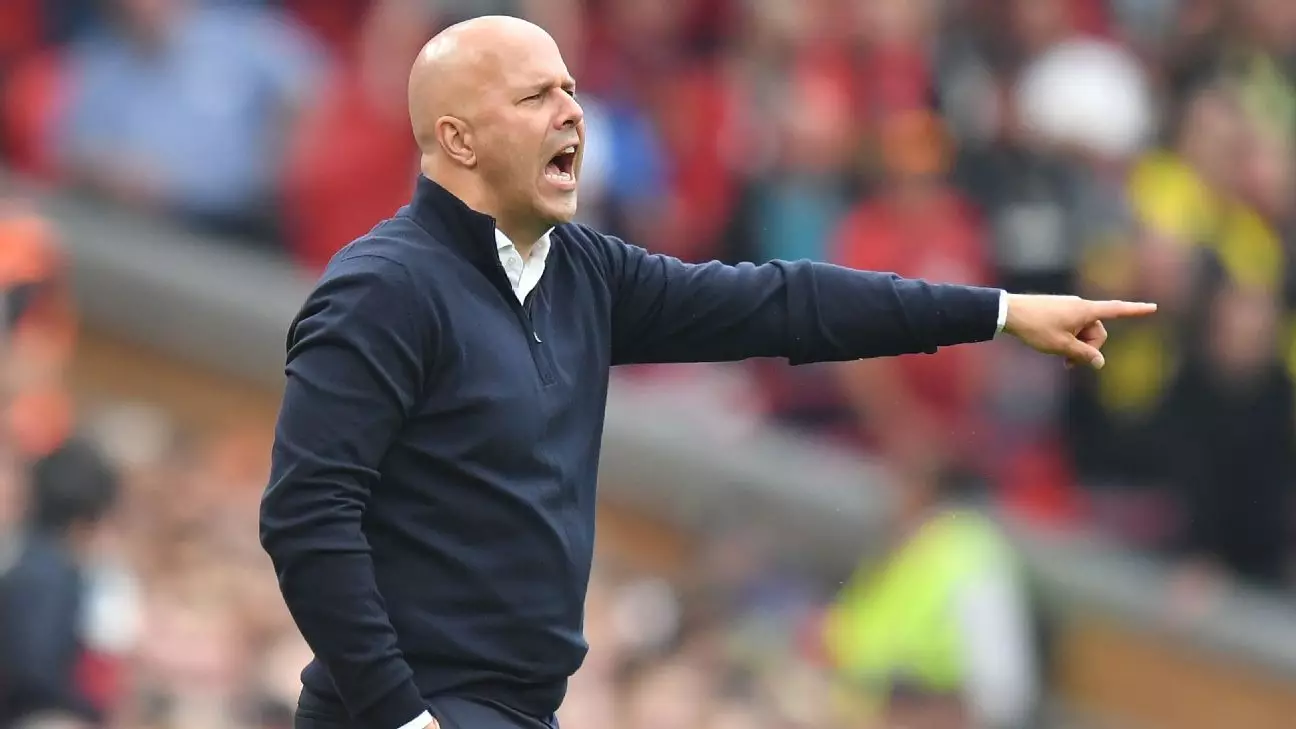Xabi Alonso’s managerial prowess has been a topic of discussion in the world of football, particularly following his remarkable performance at Bayer Leverkusen. Under his guidance, the club not only clinched their first Bundesliga title but also added the DFB Pokal to their trophy cabinet. The 2022-2023 season saw Leverkusen go unbeaten in the league, a feat that solidifies Alonso’s reputation as a formidable manager. Such accomplishments are rare, but they signify something deeper in his managerial philosophy that prompts admiration from peers like Arne Slot.
Slot’s mention of Alonso as a “special manager” underscores a growing recognition of Alonso’s ability to rejuvenate and elevate a team that was languishing at the bottom of the table before his arrival. Although Slot has not had firsthand experience working with Alonso, his respect for the former Real Madrid and Liverpool midfielder’s accomplishments is evident. What sets Alonso apart is not just his history as a player, but also his understanding of player psychology, which he seems to have mastered through years of observing and learning from top-notch managers.
Alonso’s journey with Leverkusen showcases a unique blend of strategic insight and player management. He didn’t spend lavishly to turn the club’s fortunes around; instead, he leveraged the existing squad, helping them unlock their latent potential. This often-overlooked tactic emphasizes that having a deep understanding of player characteristics and dynamics can sometimes yield more than expensive signings.
The impact of effective leadership is most visible when a manager can adapt to the strengths and limitations of their players. Alonso has demonstrated this by teaching his squad to believe in their capabilities, subsequently leading them to a major title victory. This reinforces the notion that management is as much about human psychology as it is about tactical nous. Players flourish under a mindset of belief and empowerment, a credit to Alonso’s ability to create that environment.
Liverpool’s current status at the top of the Premier League table provides a contrasting narrative—a story underscored by the uncertainty surrounding key players like Mohamed Salah, Virgil van Dijk, and Trent Alexander-Arnold. Their contract situations loom large, and while such matters often create tension within a squad, Alonso’s calm demeanor could be perceived as a skill set in and of itself.
Facing Leverkusen, Liverpool do so in high spirits, bolstered by a solid record in both domestic and continental competitions. Yet, Slot’s distance from the social media narratives surrounding Salah speaks volumes about his focus as a coach. He emphasizes direct communication, ignoring the distractions that digital platforms might attempt to sow. This approach not only keeps his view unclouded by external noise but also ensures players feel supported and understood, vital during times of uncertainty.
Examining the Future: Leverkusen’s Potential Under Alonso
As Bayer Leverkusen continues to find its footing in European competitions, Xabi Alonso’s philosophy will undoubtedly shape their path forward. His decision to commit to the club until the end of the 2024-2025 season indicates a long-term vision that could see Leverkusen evolve into a prominent player in both the Bundesliga and the Champions League.
With a background as a former champion player who has trodden the same path his players are on, Alonso harbors insight that is invaluable for nurturing upcoming talent. If Slot’s acknowledgment serves as a reflection of Alonso’s capabilities, the football community should brace for even greater feats that Leverkusen might achieve under his stewardship.
Ultimately, Xabi Alonso is not just a manager; he is a master of player development, psychological endurance, and tactical acumen. His journey at Leverkusen is just the beginning of what could be an illustrious managerial career that continues to challenge the European football landscape and inspire future generations.

